This op-ed was originally published by Project Syndicate.
Neither Joe Biden nor Kamala Harris was my first choice among the contenders for the Democratic presidential nomination in the United States. But when Biden, by then the party’s presumptive nominee, announced earlier this month that Senator Harris would be his vice-presidential running mate, it felt like a breath of fresh air.
Speakers at the recently concluded Democratic National Convention—including some Republicans like former Ohio Governor John Kasich—stressed the importance of decency and empathy in politics. And in his inspiring acceptance speech, Biden emphasized the need for America to be “a light to the world once again.” Listening to these words, I felt a rush of hope.
If Biden and Harris win in November, they will introduce important policy initiatives. They will improve the embarrassing U.S. health care system, which walls off a large section of the population from cutting-edge medical research and the world’s finest health facilities. They will try to remedy the worsening conditions confronting America’s working class, and restore some U.S. efforts to combat climate change. But I do not think they will push for the sort of radical reforms that someone like Elizabeth Warren or Bernie Sanders would have attempted.
Nevertheless, there are two reasons to feel hopeful. First, Biden and Harris are more likely to win the election than more radical Democratic contenders would have been. Second, they will bolster the institutions that previously made America strong and restore its leadership in the world. That will be crucial: Although much has been written about what Biden and Harris should do for America, they also have a global responsibility.
One of the most damaging consequences of Donald Trump’s presidency has been the loss of America’s international stature. This has had a huge adverse impact, spawning populism and authoritarianism around the world.
To be sure, America’s record of global engagement is not without blemish. In the 1960s and early 1970s, for example, it was on the wrong side of history several times—including in prosecuting the Vietnam War, tacitly supporting the overthrow of Chilean President Salvador Allende, and attempting to thwart Bangladeshi independence.
Fortunately, this coldly “realist” U.S. foreign policy slowly gave way to one with some moral compass and global concern. The president who deserves the greatest credit for this shift is Jimmy Carter. Although he was low-key and not good at politicking, Carter had the rare mettle—evident in his moving 2018 interview with The Late Show’s Stephen Colbert—to be prepared to lose for a moral cause.
In today’s globalized world, we must recognize that all human beings, not just all co-nationals, are born equal. Hyper-nationalism is not only bad economics, but is also morally wrong. I have no doubt that a time will come when we regard hyper-nationalism—the belief that one’s compatriots are special and more deserving than others—the way we view racism or caste systems are today.
Because we currently live in a world of nation-states, nationalism is unavoidable for now. But we need leaders who can pioneer an international mindset and help to build a better future for all of humanity, including the poor and dispossessed wherever they live. This is the big responsibility that Biden and Harris must shoulder in seeking to re-establish the global leadership from which America has retreated under Trump.
On the subject of internationalism, Biden and Harris may wish to consider the thoughts of India’s first Prime Minister, Jawaharlal Nehru, who spoke more eloquently about these values than perhaps any other leader. Nehru fought for India’s independence, in which nationalism was obviously a driving force. But he was mindful that we have to strive for a world in which human identity takes precedence over racial, religious, and national identity.
Nehru made his position clear in a remarkable 1953 letter to India’s chief ministers. “The feeling of nationalism is an enlarging and widening experience for the individual or the nation,” he wrote. “More especially, when a country is under foreign domination, nationalism is a strengthening and unifying force. But, a stage arrives when it might well have a narrowing influence […].”
That stage arrives, Nehru believed, because “Every people suffer from the strange delusion that they are the elect and better than all others. When they become strong and powerful, they try to impose themselves and their ways on others,” but eventually “overreach themselves, stumble, and fall.”
Nehru concluded with a warning to his newly independent country. “We, in India, have to be particularly careful of this because of our tradition of caste and separatism. We have a tendency to fall into separate groups and to forget the larger unity.”
I shall leave it to Biden and Harris to substitute the U.S. for India, and draw the lesson they may. And I will not give up hope that they will affirm America’s global responsibility and revive its leadership role, using it to promote the interest of all humanity.
The Brookings Institution is committed to quality, independence, and impact.
We are supported by a diverse array of funders. In line with our values and policies, each Brookings publication represents the sole views of its author(s).
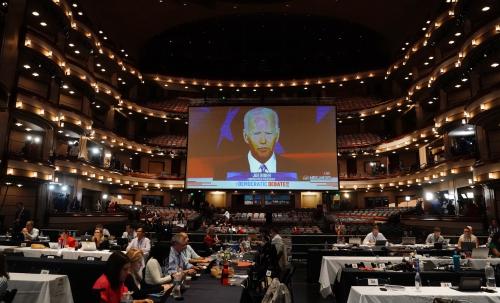
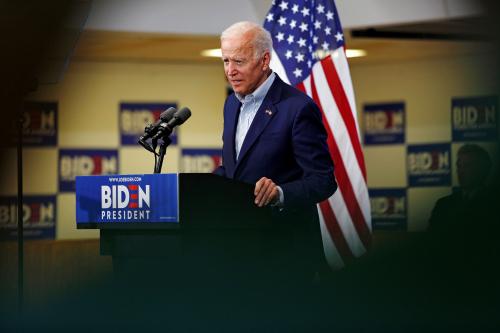
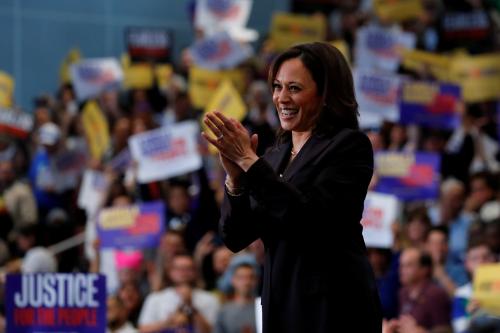
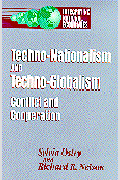
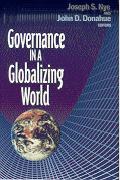



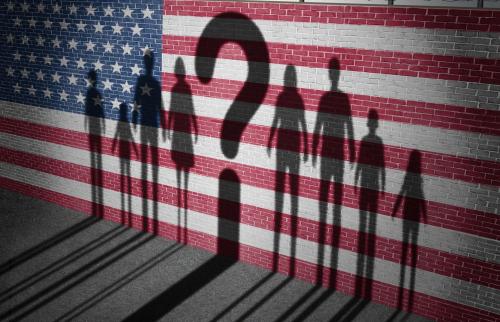
Commentary
Op-edThe global responsibility of Biden and Harris
August 24, 2020